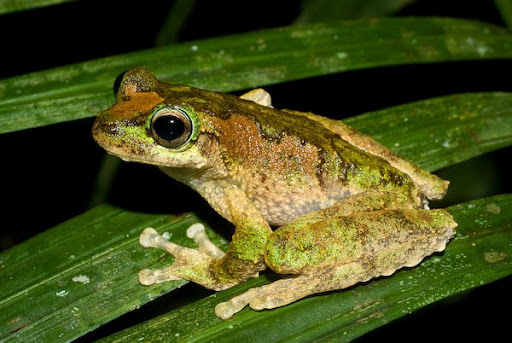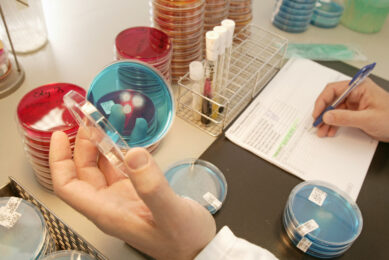Frog skin protein may help find new antibiotics

Proteins secreted by frog skin could one day help in the design of new antibiotics to fight superbugs, say researchers.
Biophysicist Dr Anton Le Brun, of the Australian Nuclear Science and Technology Organisation, and colleagues, report some of their work online in the European Biophysical Journal.
A few species of frogs are known to secrete peptides that protect against a broad range of unwanted bacteria.
The proteins are maculatin, from the green-eyed tree frog, and aurein, from the growling grass frog and the green and golden bellfrog.
Breaking membranes
Each protein has a unique way of killing bacteria by breaking their membranes, says Le Brun.
The team used synthetic membranes and synthetic versions of the frog skin peptides. They used one membrane that mimicked a bacterial membrane, and another that mimicked a red blood cell membrane.
They wanted to look at the impact of the peptides on red cell membranes to ensure that they only damage bacterial cells and leave the animal cells untouched.
The researchers found that maculatin, the longer peptide, spans the bacterial membrane, punches a hole in it, and changes its structure.
On the other hand, the shorter peptide, aurein, inserts itself into just part of the bacterial membrane.
Bacterial membranes have a negative charge on them which interact with the positively charged proteins, whereas animal cell membranes don’t, explained Le Brun.
Design new antibiotics
He says neither protein significantly affected the synthetic animal cell membrane. The next step is to use this knowledge to design new antibiotics, says Le Brun.
He says unlike current antibiotics, which tend to attack specific functions of the bacterial cell, peptides attack the bacterial membrane. "That makes it more difficult for the bacterial to develop resistance to them."











